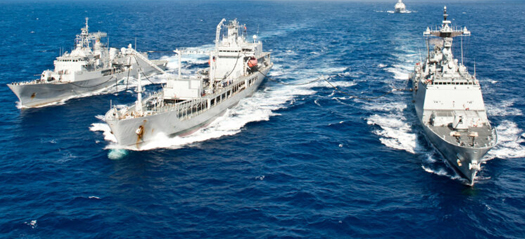
(Photo credit: Stop The War/Creative commons)
‘Anywhere but Europe’ appears to be the strategy of the Johnson Government following his highly contentious Brexit agreement that has left the UK short of allies as well as trade partners. Leaving the EU has created its difficulties, forecast by experts, dismissed by populists.
Defence and foreign policy implications are just as wide and seemingly out of the blue sprung a controversial AUKUS pact, attempting to turn the focus even further away from London to the Pacific.
It is billed as presenting Britain with its first opportunity in the post-Brexit era to ‘reassert itself on the international stage’. The focus has been on inventing a supposedly global Britain after isolating itself from many of its former allies.
It is a new engagement centred no less than some 6,000 miles away as the crow flies in a vain attempt presumably to show the UK is not alone. It comes after it was announced that two British warships will permanently deploy in the Pacific area after the Queen Elizabeth aircraft carrier and escort ships sailed to Japan in September.
For Australia, the gain is a fleet of nuclear-powered submarines to patrol the maritime region, which the UK is helping the US to supply. The problem is that it has upset France since it was to deliver conventionally powered submarines in a deal inked back in 2016. For US President, Joe Biden, it’s a much-needed distraction from the humiliating withdrawal after 20 years of failure from Afghanistan when both American hard and soft power took a significant hit.
It is suggested though that the defence pact aimed to counter the rise of China as a superpower but is not seen as the start of anything as significant as an ‘Eastern NATO’ or a new power equation altogether.
A new broad-based alliance would require more states to join in, but that does not seem likely. Traditional partners in this region such as Japan, South Korea and the Philippines already have very complex relations with Beijing and this would only make the issue more pronounced.
China has warned that it is an attempt to start a new Cold War. The most immediate losers though are France, which has accused its allies of “duplicity” in scuttling its multibillion-dollar deal with Australia. Britain itself has found relations not only with Europe but with France in particular already strained, including over immigration. It hardly needed another issue to deter ties even more.
Although there is little doubt that the new defence pact is aimed at containing China, the question is how substantive it will prove to be. Most countries have conflicting interests, with Beijing being by far the major supplier of goods around the globe. British foreign policy itself seems to be playing yet another rather deceitful game, perhaps nothing unusual in that. But some kind of initiative is needed, as it attempts to build up friends in the post-Brexit era, even if it is again dependent upon US military might.
Whether AUKUS is a move towards yet another new world order remains to be seen.
If anything, it underlines how disjointed the world has become following the elections of popularist governments, first in the US under Trump before being followed by Boris Johnson in London. Whether it will lead to a complete switch of focus and fewer wars being waged in the Middle East and Muslim countries remains highly questionable, with insecurity in so many places in the world.
AUKUS is a trilateral security pact between Australia, the United Kingdom and the United States, announced on September 15 for the Indo-Pacific region. Under the pact, the US and the UK will help Australia acquire nuclear-powered submarines.